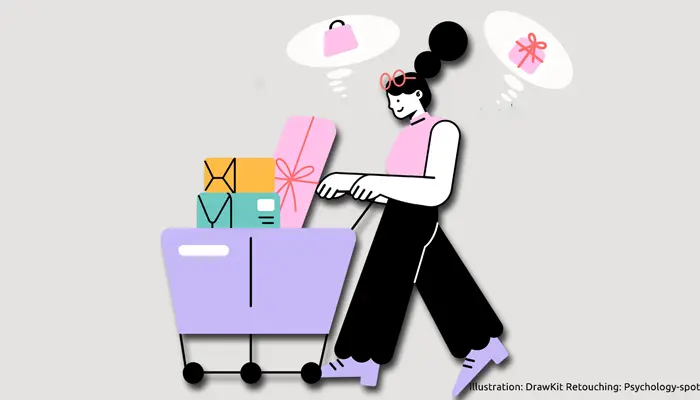
The next time you go to the supermarket, you will see the shopping carts in a different light, especially if they are blocking the parking space or are scattered everywhere, blocking the way. This everyday object can reveal a lot about us, especially about our level of self-control and self-regulation, but also about the society in which we live.
What kind of person you are?
Abandonment of the shopping cart is not illegal (at least for the moment). No one will punish us or give us a fine for leaving it lying in the middle of the parking lot. But it’s not good. The correct thing is to return it. We know.
We are aware that, to live in society, we must be civil and respect the basic laws of coexistence. But still, many people fail to do the right thing, unless there is an obligation or imposition involved.
This conflict between what is appropriate and what is easy has come to life on the Internet, giving rise to what is known as the “shopping cart theory”, a kind of “test” that is used to discover some truths about our character, until the point that some think that our decision determines whether we are good or bad members of the society.
The philosophical question underlying the shopping cart test is: are we guided by an internal moral compass or, on the contrary, do we only react to external punishments and rewards?
People who take others into account and are aware that this small gesture improves everyone’s coexistence are more likely to return the shopping cart to its place. These people are also capable of better self-regulation and have an internal locus of control. That is, they have internalized values such as responsibility, respect or empathy and they guide their behavior through them, even if sometimes this represents a small inconvenience, such as walking to the point where we must leave the stroller.
On the other hand, there are people who are lazy. They think, “At the end of the day, if no one is watching and no one will punish me, why should I bother returning the cart back? ” These people usually have an external locus of control or have not developed the values that facilitate coexistence, so that they do not internally regulate their behavior. They simply prefer to take the simplest path, without thinking about the inconvenience they may cause to others, which is why their behavior tends to be more selfish and short-term.
Obviously, a specific behavior cannot be used to rule out a person. A moment of negligence, inconsideration or even absent-mindedness does not automatically turn us into uncivil people, but it is a warning sign, especially on a social level.
Plato, the golden thread and an indolent society
Plato was referring to a metaphor according to which we are all “puppets of the gods” moved by the strings of our impulses, needs and desires. But he also warns that not all ropes are created equal.
The “iron threads” are our most basic emotions and impulses, such as pleasure, pain, fear or lust. The “golden thread” is our logismoû or reasoning. It is a magical, shining thread within each of us that drives us to do good.
For Plato, a good citizen is one capable of self-regulation. That person has the same struggles and internal conflicts as everyone else, but they follow the golden thread. Education is key to fostering that virtue and helping us discern between right and wrong, pushing us to act correctly.
Therefore, behind every abandoned cart there is not only a person who has been too lazy or selfish but also a very complacent society that gave rise to that behavior or, in a way, allows it.
At the 2022 World Cup, much of the world was amazed to see how Japan’s players left the locker room tidy, especially after their victory. They even left a thankful note with several origami figures. The team wanted to make the task easier for those responsible for cleaning, something unusual in the world of sports. And the most curious thing was that some of their fans also stayed at the end to help the stadium workers pick up the trash.
It is a simple gesture, but it says a lot about a society. And the same goes for shopping carts.
In New Jersey, for example, a bill was introduced to impose $250 fines for abandoning carts, and in many European countries, supermarkets no longer trust shoppers to be guided by their “golden thread”: they force to insert a coin to use the carts.
At some point education has failed. We have not known how to transmit and develop the appropriate values. At some point, laziness, selfishness, and carelessness began to be acceptable behaviors.
For this reason, there are more and more people who do not think about others when they make their daily decisions. They believe that they are the navel of the world, so their uncivil behaviors end up affecting others, generating those small daily annoyances that end up eroding coexistence.
We all find it equally comfortable to leave the shopping cart abandoned. We all have those iron threads inside. But most of us don’t do it. We do the right thing. For ourselves and also for the others.
Source:
Thomson, J. (2024) Everyday Philosophy: The quickest way to test your moral character. In: Big Think.




Leave a Reply